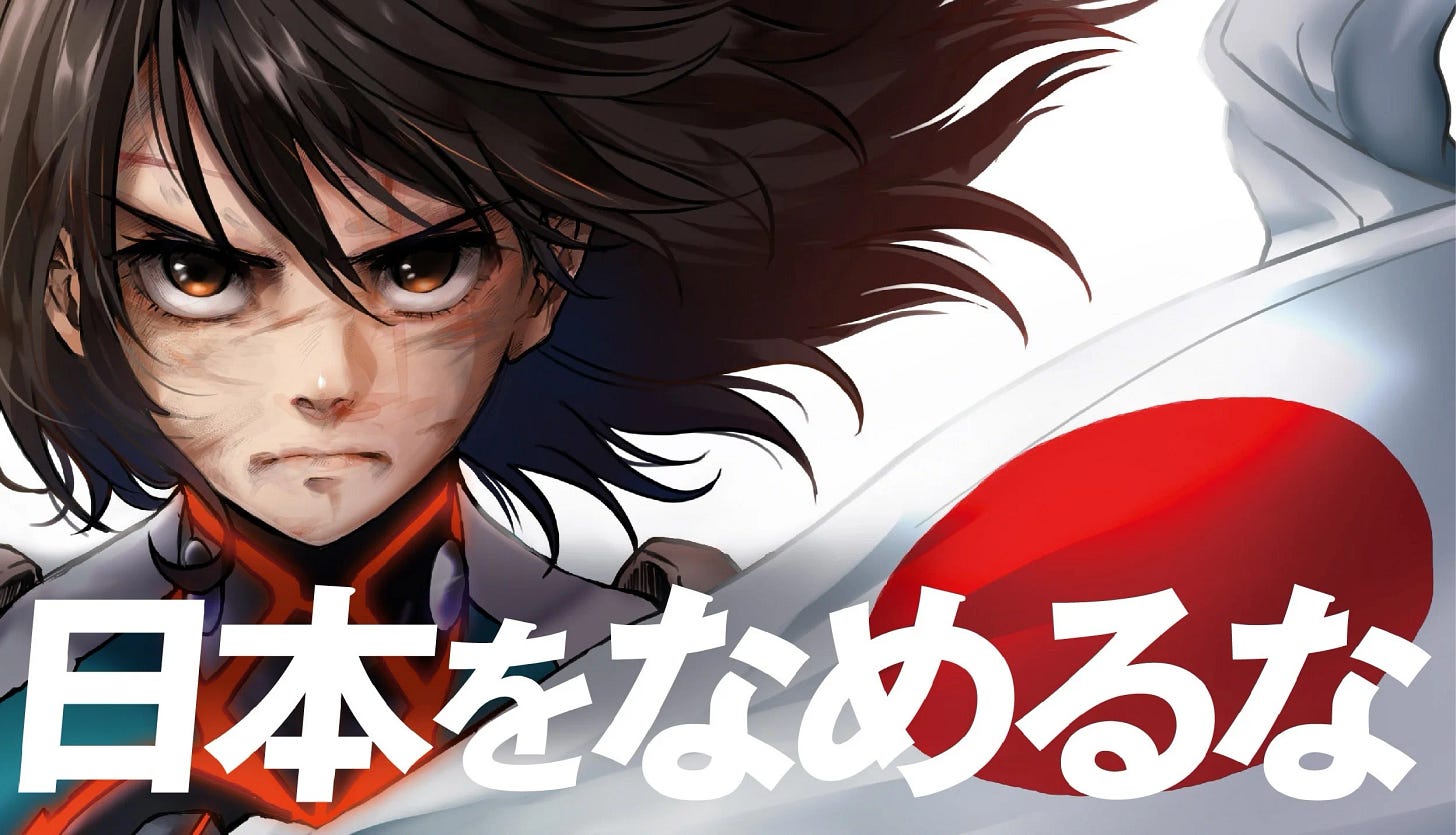Pop and Populism
Japan’s far right won big in yesterday's elections. What's it mean for pop culture?
Sanseito, a.k.a. “the do it yourself party,” is a far-right political group that’s pretty much anti-everything. Semitic. Vaccinations and masking. LGBTQ rights and same-sex marriage. Anything critical of Japan in school textbooks. Married couples having separate names. Women taking the throne. But perh…




